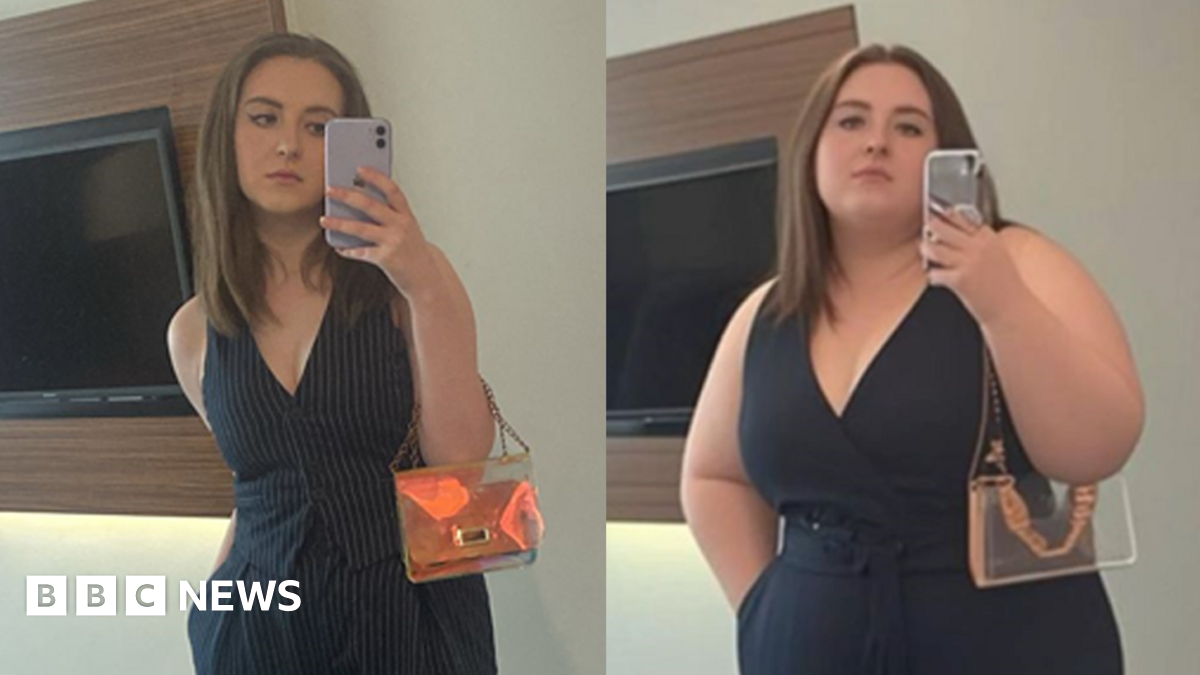Chubby Filter TikTok: Controversy and Debate Spark Ethical Questions
The viral "chubby filter" on TikTok has ignited a firestorm of controversy, sparking intense debate about body image, self-esteem, and the platform's responsibility in shaping perceptions of beauty. This seemingly innocuous filter, designed to make users appear fuller-faced and rounder, has raised serious ethical concerns amongst users, experts, and even TikTok itself. This article delves into the controversy surrounding the chubby filter, examining its impact and the broader implications for social media's role in body image issues.
The Allure and the Backlash: Understanding the Chubby Filter's Impact
The filter's popularity stems from its ability to seemingly soften facial features, creating a perceived "cutness" that many find appealing. For some, it's a fun way to experiment with their appearance and engage in playful self-expression. However, this playful aspect quickly morphs into something more problematic.
The backlash centers around several key points:
- Reinforcing unrealistic beauty standards: Critics argue the filter promotes an unrealistic and potentially harmful beauty standard, suggesting that a "chubby" face is inherently more desirable than other features. This contributes to the already prevalent pressure to conform to specific aesthetic ideals.
- Perpetuating body image issues: The filter's popularity exacerbates existing anxieties surrounding body image, especially amongst young and impressionable users. Constantly seeing altered images can lead to dissatisfaction with one's natural appearance and contribute to negative self-perception.
- The filter's deceptive nature: Many argue the filter's deceptiveness is a significant concern. It creates a false representation of reality, contributing to a culture where digitally altered images are considered the norm, potentially leading to unrealistic expectations and comparisons.
TikTok's Response and the Broader Social Media Landscape
TikTok has yet to issue a formal statement directly addressing the controversy. However, the platform's ongoing efforts to moderate content and promote positive mental health suggest an awareness of the issue. This isn't just a TikTok problem, though. Similar filters and editing tools exist across numerous social media platforms, highlighting a systemic issue within the digital landscape.
The Ethical Implications: A Call for Responsible Use and Content Creation
The chubby filter controversy underscores the crucial need for responsible use of social media filters and editing tools. It also highlights the responsibility of social media companies in curating content and fostering a healthy online environment.
Here are some key takeaways to consider:
- Media Literacy: Educating users about the potential impact of filters and edited images is critical. Promoting media literacy empowers individuals to critically assess the content they consume and create.
- Promoting body positivity: Encouraging self-acceptance and celebrating diverse body types is paramount. Social media platforms should actively promote body positivity initiatives and partner with mental health organizations.
- Transparency and accountability: Greater transparency from social media companies regarding their algorithms and content moderation policies is essential. This accountability is crucial to addressing issues like the proliferation of potentially harmful filters.
Moving Forward: A Collaborative Approach
The controversy surrounding the chubby filter is a wake-up call for social media platforms, users, and mental health experts. A collaborative effort is needed to address the broader issues surrounding body image, self-esteem, and the impact of social media on mental wellbeing. Open dialogue, responsible content creation, and increased media literacy are crucial steps towards creating a healthier and more positive online environment.
Keywords: Chubby filter, TikTok filter, body image, self-esteem, social media, controversy, ethical concerns, filter debate, body positivity, media literacy, social media responsibility, unrealistic beauty standards, digital manipulation, online mental health.
Related Articles (Internal Linking - example, replace with actual URLs):
- [Article on TikTok's Content Moderation Policies]
- [Article on Body Positivity Movements]
- [Article on the Impact of Social Media on Mental Health]
External Links (Example, replace with actual URLs):
- [Link to a relevant article from a reputable news source]
- [Link to a mental health organization's website]
Call to Action: What are your thoughts on the chubby filter controversy? Share your opinions and experiences in the comments below!
